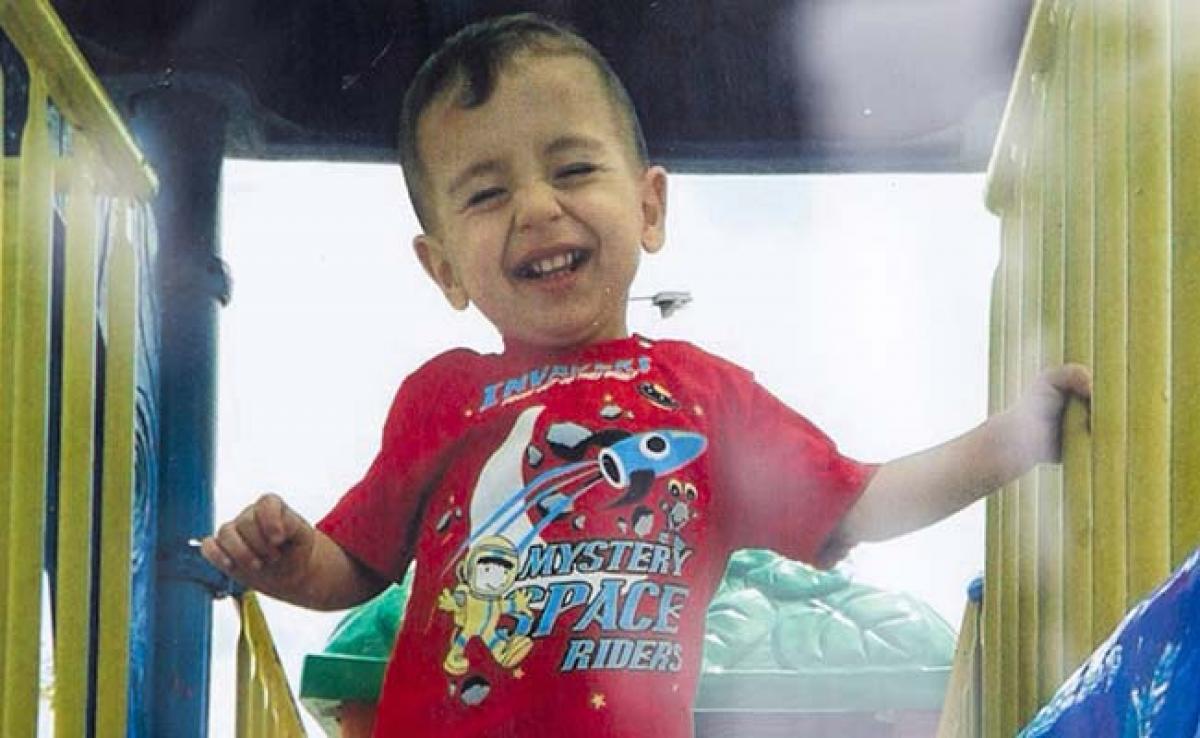Live
- AP Dy CM, assembly speaker condoles death of former MLA Nara Rammurthy Naidu
- Senegal wraps up campaigning for legislative elections ahead of vote on Nov 17
- Free Study Materials Distributed to Needy MBBS Freshers by Seniors
- Boeing lays off over 400 members of professional aerospace union
- An egg a day may boost memory, brain functions in women: Study
- Ready for debate on BRS 10 year rule and Congress one year's, TPCC Chief Mahesh Goud
- Director Arjun Jandhyala speaks about ‘Devaki Nandana Vasudeva’
- Amitabh Bachchan praises Bihar’s ‘LittiChokha’
- ‘Maha Sandram’ gets a grand launch
- Cong wants to break marginalised communities, BJP bats for everyone: PM Modi
Just In

x
Highlights
Migrants forced from a train in Hungary scuffled with helmeted riot police and some clung to railway tracks on Thursday, as politicians across Europe struggled to respond to public opinion appalled by images of a drowned 3-year-old boy.
Migrants forced from a train in Hungary scuffled with helmeted riot police and some clung to railway tracks on Thursday, as politicians across Europe struggled to respond to public opinion appalled by images of a drowned 3-year-old boy.
.jpg)
France and Germany said European countries must be required to accept their shares of refugees, proposing what would potentially be the biggest change to the continent's asylum rules since World War Two.
Europe's worst refugee crisis since the Yugoslav wars of the 1990s has strained the European Union's asylum system to breaking point, dividing its 28 nations and feeding the rise of right-wing populists.
Hundreds of thousands of refugees from wars in the Middle East, along with economic migrants fleeing poverty in Africa and Asia, have braved the Mediterranean Sea and land routes across the Balkans to reach the European Union. Thousands have died at sea and scores have perished on land.
Nearly all first reach the EU's southern and eastern edges before pressing on for richer and more generous countries further north and west, above all Germany, which has emphasised its moral duty to accept those fleeing genuine peril.
Saying some European countries had failed to "assume their moral burdens", French President Francois Hollande said he had agreed with German Chancellor Angela Merkel on "a permanent and obligatory mechanism" to allocate refugees across the bloc.
"I believe that today what exists is no longer enough," he said. "So we will need to go further."
Merkel said Europe must solve the refugee crisis with "fairness and solidarity". Germany was prepared to accept more refugees per capita than its neighbours, but others must do their part with "quotas and rules that are fair and take into account what is possible in each country".
Politicians across the continent acknowledged the impact on Thursday of images of a 3-year-old boy in a red T-shirt and tiny sneakers face down in the surf of a Turkish beach, which gave a haunting human face to the tragedy of thousands dead at sea. The boy's 5-year-old brother Galip and 35-year-old mother Rehan were also among 12 people who died when two boats carrying 23 capsized while trying to reach a Greek island.
His father Abdullah Kurdi, who was rescued barely conscious, collapsed in tears after emerging from a morgue where the bodies were held. "The things that happened to us here, in the country where we took refuge to escape war in our homeland, we want the whole world to see this," Abdullah told reporters. "We want the world's attention on us, so that they can prevent the same from happening to others. Let this be the last," he said.
Hungary has emerged as the primary entry point for those reaching the EU overland across the Balkans, and its right-wing government has become one of the most vocal on the continent opposing large-scale immigration.
Hollande's announcement of an agreement with Merkel on a mandatory system to allocate refugees would transform the asylum rules for the 28-member EU, which operates common frontiers but requires countries to process refugees separately.
The major EU states have taken sharply opposing positions on how far to open their doors, symbolised most prominently by Germany and Britain.
Germany, led strongly on the issue by Merkel, plans to receive 800,000 refugees this year and has budgeted billions in additional welfare spending for them.
Britain, by contrast, has set up a programme to allow in vulnerable Syrians that has admitted just 216. It has also granted asylum to around 5,000 Syrians who managed to reach British shores since the war began four years ago, but Prime Minister David Cameron has opposed mandatory EU refugee quotas.
"There isn't a solution to this problem that's simply about taking people," he said in televised comments on Thursday.
His hardline stance has come under fire even from within his own Conservative Party: "We cannot be the generation that fails this test of humanity. We must do all we can," tweeted Conservative member of parliament Nicola Blackwood.

Next Story
More Stories
ADVERTISEMENT
© 2024 Hyderabad Media House Limited/The Hans India. All rights reserved. Powered by hocalwire.com







